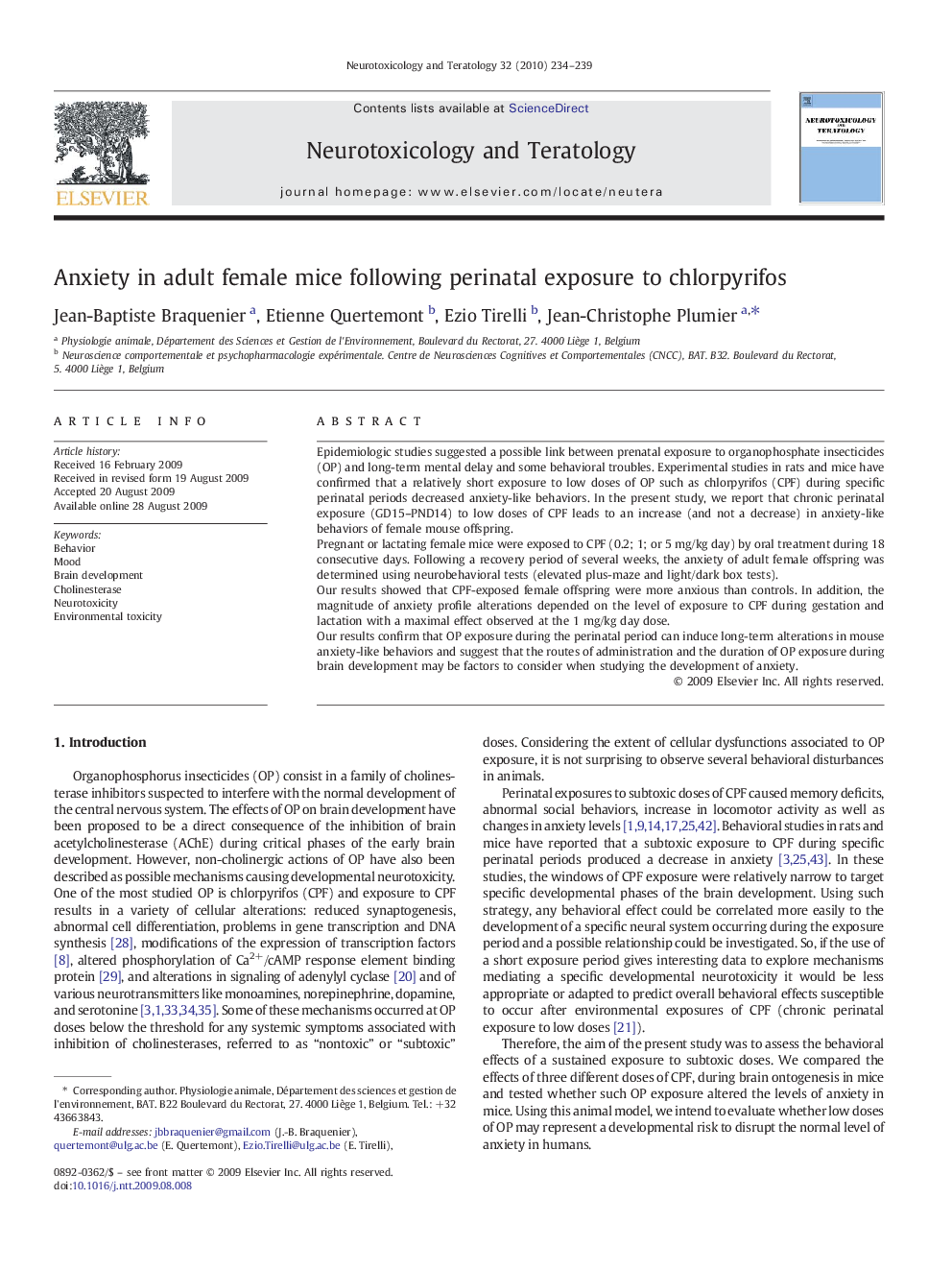| Article ID | Journal | Published Year | Pages | File Type |
|---|---|---|---|---|
| 2591777 | Neurotoxicology and Teratology | 2010 | 6 Pages |
Epidemiologic studies suggested a possible link between prenatal exposure to organophosphate insecticides (OP) and long-term mental delay and some behavioral troubles. Experimental studies in rats and mice have confirmed that a relatively short exposure to low doses of OP such as chlorpyrifos (CPF) during specific perinatal periods decreased anxiety-like behaviors. In the present study, we report that chronic perinatal exposure (GD15–PND14) to low doses of CPF leads to an increase (and not a decrease) in anxiety-like behaviors of female mouse offspring.Pregnant or lactating female mice were exposed to CPF (0.2; 1; or 5 mg/kg day) by oral treatment during 18 consecutive days. Following a recovery period of several weeks, the anxiety of adult female offspring was determined using neurobehavioral tests (elevated plus-maze and light/dark box tests).Our results showed that CPF-exposed female offspring were more anxious than controls. In addition, the magnitude of anxiety profile alterations depended on the level of exposure to CPF during gestation and lactation with a maximal effect observed at the 1 mg/kg day dose.Our results confirm that OP exposure during the perinatal period can induce long-term alterations in mouse anxiety-like behaviors and suggest that the routes of administration and the duration of OP exposure during brain development may be factors to consider when studying the development of anxiety.
